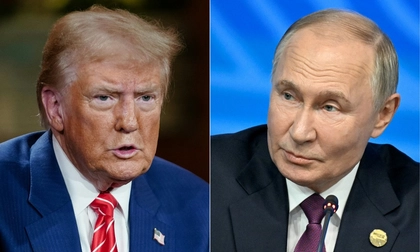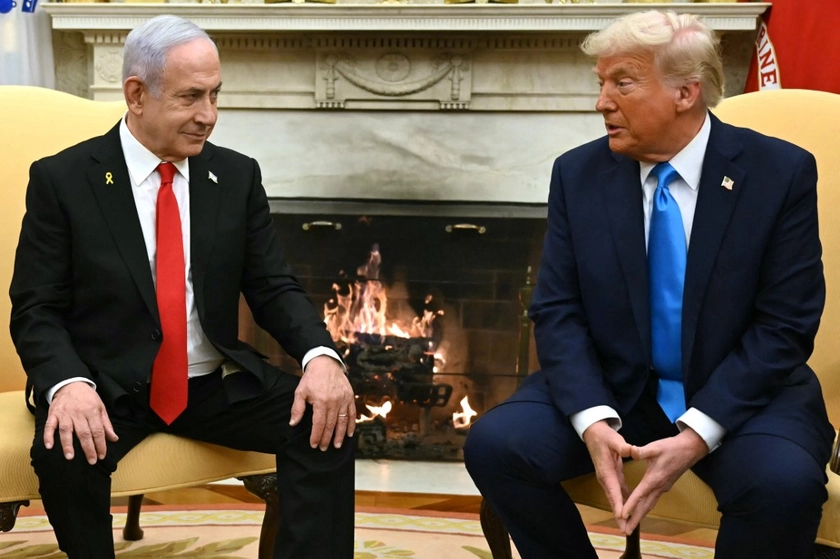President Joe Biden’s 11th hour decision to finally authorize Ukraine after years of delay to use US-made ATACMS inside of Russia was long overdue. The Armed Forces of Ukraine (AFU) has needed this vital precision deep-strike capability since their initial stalled counteroffensive in June 2023.
Failure to do so sooner has afforded Putin unprecedented military sanctuary. Russian forces are able to amass troops, weapons and munitions inside Mother Russia; however, Ukrainian President Volodymyr Zelensky and his generals heretofore could not interdict them before they arrived on the battlefields of Ukraine.
JOIN US ON TELEGRAM
Follow our coverage of the war on the @Kyivpost_official.
Biden’s absurd restriction to date on ATACMS has allowed Putin to repeatedly seize the initiative in the Donbas. As a result, the AFU has continued to lose cities and territory in World War I-like ‘meatgrinder’ battles including Bakhmut, Avdiivka and most recently Vuhledar. Others, including Kupyansk and Pokrovsk, remain under siege.
Egregiously, the White House’s dithering has resulted in the needless deaths and wounding of thousands of Ukrainian soldiers and civilians. Predictably, Russian failures on the battlefield – this time an unsuccessful counteroffensive in the Kursk Oblast – have resulted in the deliberate targeting of Ukrainian civilians in residential neighborhoods and Ukraine’s energy infrastructure at the onset of winter.

Russia Presents Demands to US to End War: Capitulation
Indeed, Sunday’s tardy decision came after the Kremlin conducted a large-scale missile and drone attack on Ukraine’s energy grid: 120 missiles and 90 drones pummeled Ukrainian infrastructure – and at least 10 people were killed.
On Monday, a Russian Iskander-M ballistic missile that was successfully intercepted by Ukrainian air defense forces fell into a residential sector of the Prymorsky district of the Black Sea port city of Odesa, killing ten people and injuring 43.
Yet, even still, Biden’s decision has not gone far enough – it is still ‘just enough.’ As if to appease Mad Vlad once again, the fine print to the White House announcement is that ATACMS can only be used against Russian and North Korean troops in the Kursk Oblast.
While that is welcomed, it fails to strategically address Russian ballistic missile and drone threats – most recently experienced again in Odesa, Kyiv, Donetsk, and Lviv – or the flow of troops, equipment and weapons into Ukraine from Russia.
Plus, by publicly announcing the change in policy on Sunday, the Biden administration gave Putin and the Kremlin advanced warning so he can move his forces out from the impact area – the Kursk Oblast.
The US change in policy continues to dictate to Ukraine what they can and cannot do with weapons provided to them. In the process it cedes the battlefield initiative to Russia – and now, North Korean forces.
But even that was not enough to satisfy Moscow. Instead, predictably, it led to even more Russian threats of escalation. On Monday, the Kremlin warned that Biden’s decision to let Ukraine strike targets inside Russia with US-supplied longer-range missiles adds “fuel to the fire” of the war and would escalate international tensions even higher.
It is time for the West to stand its ground and stop empowering Putin. Washington must channel Civil War Union Gen. Ulysses S. Grant and his unconditional surrender mentality – and let the AFU take the battle to Russia much the same way Grant took the fight to Confederate Gen. Robert E. Lee. One of relentless pressure and pursuit.
The only solution is a Russian defeat at the hands of the AFU and the permanent restoration of Ukraine’s 1991 borders.
Ukraine requires unrestricted use of ATACMS, British Storm Shadow, and French SCALP precision strike weapons. Ditto German Taurus air-launched cruise missiles if German Chancellor Olaf Scholz would ever decide to release the weapon to interdict these forces before they arrive on the Ukrainian/Russian battlefields.
France and the United Kingdom reportedly are now reconsidering Ukraine’s use of SCALP and Storm Shadow long-range missiles to strike Russian territory as well. Germany’s forthcoming election may finally take the decision of equipping Kyiv with Taurus missiles out of Scholz’s hands – and into the hands of Friedrich Merz, the head of the Christian Democratic Union.
London and Paris’ decision cannot come too soon. While Ukraine is killing or wounding as many as 1,500 Russian soldiers a day in the close fight – the trenches – the flow of Russian and North Korean enemy combatants onto the battlefield remains unconstrained.
Kyiv needs to stem the flow. That requires interdiction: an action to divert, disrupt, delay, or destroy the enemy’s military surface capability before it can be used effectively against friendly forces, or to otherwise achieve objectives.
The AFU requires the ability to interdict Moscow and Pyongyang’s forces before they arrive on the battlefield – at the railheads, seaports, and airfields. Not just in the Kursk Oblast – this war is much bigger than that. That requires precision deep strike capability and the authorities to use them whenever and wherever the threat resides.
Equally as important, Ukraine urgently needs the ability to strike ballistic missile and drone launch sites – from wherever they are fired. Shooting individual missiles out of the sky does not defeat the weapon system. If left unchecked, that weapon system and its crew will fire again, and again.
The only way to stop this is for the AFU to defeat Russia. The Biden Administration has yet to grasp this concept; rather, their incessant cowering to Putin and his “rules of engagement” has resulted in their escalation paralysis at what Putin might do in the event of a “catastrophic battlefield loss.”
Instead, Biden’s attempt at de-escalation has led to Russian escalation. Consequently, we do not share retired Lt. Col. Robert Maginnis’ concerns about “enraging Putin and likely broadening the war.” Putin has already “broadened” the war with North Korean troops, along with their artillery and ballistic missiles – and armed with ballistic missiles and drones from his other “arsenal of evil” – Iran. Rather, greenlighting the use of ATACMS is a reaction to Russian actions and the introduction of North Korean troops into the fight.
The US and NATO should be sending a direct message to Putin: Ukraine has unrestricted use of Western precision deep-strike weapons and has the authority to use them wherever and whenever Russian and North Korean forces present an imminent threat to the AFU and Ukrainian citizens. And that those authorities will remain in place until Russian forces withdraw from Ukraine and North Korean forces return to the Korean Peninsula.
The incoming Trump Administration must also embrace this message. There can be no mixed signals. President-elect Trump’s phone call to Putin after the election on Nov. 5, where he “advised the Russian president not to escalate the war in Ukraine and reminded him of Washington’s sizable military presence in Europe” had about as much impact on Putin’s decision-making as Biden’s “don’t” message had with Iran. Within days North Korean soldiers were fighting in the Kursk region. And Russia was yet again deliberately targeting Ukrainian civilians.
Trump’s emerging national security team must acknowledge that negotiations with Putin will likely be futile. As retired Army Gen. Jack Keane said on Fox News, “He [Putin] is completely determined to take control of Ukraine… he is also determined to expand into Eastern Europe and increase the Russian Empire.”
The only solution is a Russian defeat at the hands of the AFU and the permanent restoration of Ukraine’s 1991 borders. Then, to ensure lasting peace, admission into NATO and the European Union. The sooner Putin understands that condition – the sooner this war ends. It likely will not come from negotiations but rather the pointy end of the bayonet.
The views expressed in this opinion article are the author’s and not necessarily those of Kyiv Post.
Copyright 2024. Jonathan E. Sweet and Mark C. Toth. All rights reserved.
Col. (Ret.) Jonathan Sweet served 30 years as an Army intelligence officer. Mark Toth writes on national security and foreign policy.
You can also highlight the text and press Ctrl + Enter











